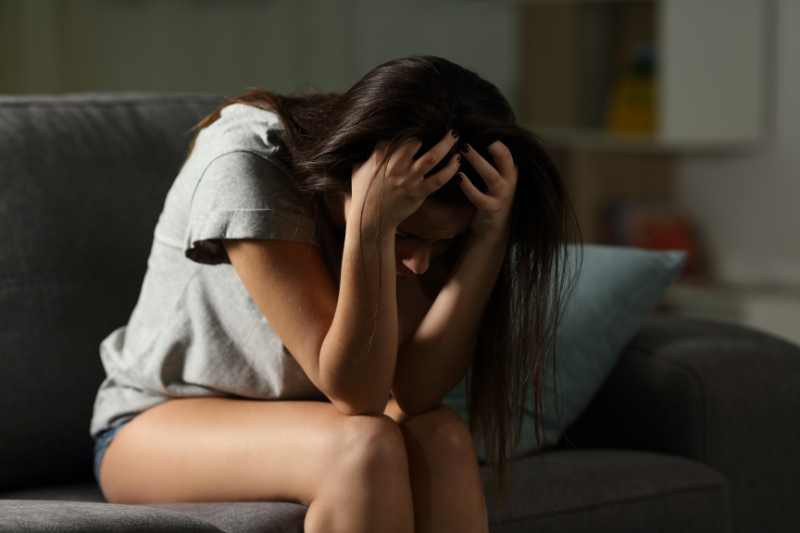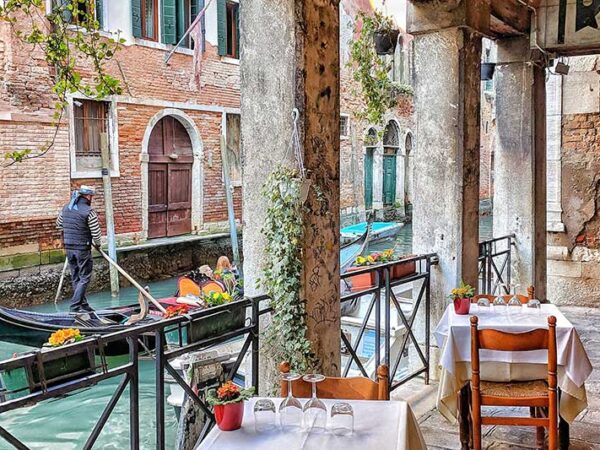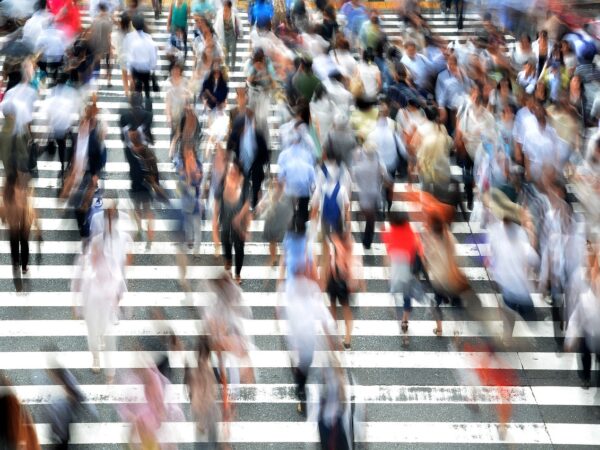A recent survey has revealed that if you can’t wait to visit the unhappiest country in Europe, you should head straight for Bulgaria. A recent poll showed that this country (or rather its people) is by far the unhappiest in the European Union.
The nation, which became an EU member not too long ago in 2007, ended up right at the bottom of the Brussels survey in terms of life satisfaction.
On a happiness scale that ranges from 0 to 10, Bulgarians could only muster 4.8. The most unhappy nation after Bulgaria was Portugal, with a happiness score of 6.2.
The poll was released to coincide with the March 20th Day of Happiness and also showed that the region in Europe where people were the most satisfied with their lives was Scandinavia.
Why are Bulgarians so unhappy?
The country has a high unemployment rate of 10.8%, and its GDP is the lowest in the European Union. The average yearly wage here in 2013 was a meagre 1,949 Euros, which was also the lowest in the European Union. Despite the economy growing rapidly from 2004 to 2008, the economic crisis hit Bulgaria particularly hard.
According to a South-East Europe expert at the London School of Economics, Dimitar Bechev, Bulgaria’s problems were not as simple as money alone. He said that becoming part of the EU failed to make Bulgarians happy. They saw it merely as a “necessary evil”, and expectations might have been too high among the country’s population. Since the economic crisis, they feel that there is nobody left to trust and that EU membership did not live up to expectations. People are calling for a more transparent government and the rule of law and for more independence of Brussels in decision-making.
Bechev added that these were long-term goals that will not happen overnight. If it happened, more people would be happy. But for now, it remained a distant dream.
Elena Georgieva, a PR consultant, said that she wasn’t surprised to hear that her country’s people were the unhappiest in Europe. She believes that there are a variety of reasons. One, she says, is that Bulgarians naturally have a dark view of life. They tend not to smile much, even during the good times.
She added that, since the end of the communist era, large numbers of Bulgarians have remained living in relative poverty, which came with a price in terms of happiness. They are typically simple people who do not ask for large amounts of money or are able to go on luxurious overseas trips. They just want enough money to live a decent life. Currently, however, they constantly have to worry about job security and whether or not they will have the money to buy food or pay their monthly bills. In severe cases, elderly people sometimes have to choose between paying for heating during the winter months and buying the medicine they need.
University of Sofia researcher Ivaïlo Ditchev responded to a different poll, this time by the United Nations that also ranked Bulgaria as one of the world’s unhappiest countries. He believes that a major factor is that, for most people, happiness is more about a process than a state. They are not happy if they are not evolving. Ditchev compared this to riding a bicycle. The pedals have to keep turning, otherwise you would fall over. To overcome obstacles, you have to keep moving forward.
That is why, he added, the happiest societies were those that had a plan, a goal. And Bulgaria had been without a plan or a goal for quite a while now. It might be because of the ageing population, but one thing was clear, they no longer knew where their country was headed.
Ditchev concluded by saying that a major factor was also that a feeling that you belong has always been part of what happiness meant for most people, a feeling that you form part of a caring community that appreciates what you do. That could be the reason why the Scandinavian nations, with their well-developed welfare states, always ranked near the top of the happiness index.
A different poll gives different results.
According to a Eurostat poll that was conducted in 2018 among 25 European countries, Latvia was at the bottom when it came to the happiness of its people. Less than one-third of Latvian participants said they were happy all the time or at least most of the time. Nearly 28% of the country’s people said they never or very seldom felt happy during the 4 weeks that preceded the poll.
After Latvia, the two other countries that found themselves at the bottom of the happiness list were, wait for it, Bulgaria, followed by Croatia.
There is at least some good news: participants from all the countries taking part in the poll believed they were happier now than during the previous poll in 2013. That is, except for the Netherlands, Sweden, and Lithuania.
The other end of the scale – Europe’s happiest countries
If the first part of this article made you believe that Europeans are generally speaking a miserable, unhappy bunch, think again. Europe is often right there at the top of the World Happiness Report. And not even the Covid-19 pandemic could change that.
People often say that, even during the worst times, joy is still there to be found by those who want to see it. The new report, which was a collaboration between the Gallup World Poll and the United Nations’ Sustainable Development Solution Network, backs up this belief with lots of data.
While emotions did sometimes change for the worse, and people expressed sadness, particularly during the Covid-19 lockdowns, they showed remarkable resilience in the way they rated their quality of life and well-being.
Why were most Europeans able to remain fairly upbeat during the dark times of Covid-19? The researchers ascribe this to various kinds of support systems that helped to reduce the impact of all the shocks. These include official government programs but also Europe’s history of equality, strong social connections, and robust domestic social protection systems.
The researchers identified 6 core variables that helped to improve life satisfaction in Europe: charity and generosity towards others, being free to make your own important life choices, a good life expectancy, corruption-free government, social support during times of need, and a relatively high per capita GDP.
The three European countries at the top of the happiness ranking did remarkably well in every single one of these categories.
Iceland
Iceland often finds itself at the top of some or other quality-of-life survey. The World Economic Forum has chosen it as the best country on earth when it comes to gender equality. And according to the Institute for Economics and Peace, it has been the most peaceful every year for the last ten years.
This small nation with fewer than 350,000 inhabitants is also a great example of how one should deal with a pandemic. The country started 2022 with only 37 deaths that could officially be ascribed to Covid-19.
What did Iceland do better than the rest? In the first stages of the Covid-19 pandemic, health officials did their best to prevent the spread of the virus earlier than the majority of other nations. They did this via aggressive contact tracing and testing.
The government, meanwhile, guaranteed that those who were thought to be infected with the virus could safely decide to stay home without having to fear losing their income because the government guaranteed their full salaries. How did they spend their time at home? Apparently, by making babies. Births in the majority of Nordic nations escalated between 2020 and 2022, particularly in Iceland, where there was an increase of 7.5%.
Iceland deserves its consistently high ranking in the happiness index with its beautiful landscapes, free education and healthcare, and remarkable collective sense of community and trust. Not many people will be surprised that it once again came so close to the number one spot of this United Nations index.
Denmark
Finding itself in the number two spot for the 4th consecutive year, Denmark actually topped the list in 2012, when the first survey was done. According to the report’s authors, Nordic nations share much the same values, political models, and social structures. That probably explains why nearly all of them regularly find themselves among the top 10 happiest countries on Earth.
That, however, does not mean that, when they were faced with the terrible threat of the Covid-19 pandemic, the Nordic countries blindly adopted the same solutions and were equally successful in combatting the virus. Denmark fared extremely well during the first Covid-19 wave in the spring of 2020. So well that its chief epidemiologist proudly predicted that it was ‘very unlikely’ the country would have to face a second wave. As we all know by now, he was proven wrong.
Currently, though, with the pandemic over and nearly forgotten, life is slowly starting to return to normal for the country and its people. Danes have many reasons to be happy right now. Their country scores very high when it comes to healthcare, environment, and work-life balance. The Danes also pride themselves on enjoying one of the smallest wealth gaps anywhere on earth and having a society where individuals share both the benefits and the burdens equally.
Finland
Once again, Finland finds it at the top of the world happiness ranking. It moved from fifth position to the number 1 spot 4 years ago, and it appears to be determined to remain right there for the foreseeable future.
Although this nation has not been unaffected by the Covid-19 pandemic, it moved fast and comprehensively. When everything is taken into account, Finland handled this challenge better than the majority of other nations.
Finnish people have many good things in their lives to help take their minds off any possible negative issues. This is a nation of truly happy people who enjoy a remarkably high standard of living, their cultural scene is thriving, and – just in case things don’t work out the way they planned, they have 3 million saunas to help them relax.
On top of all that, you will find more natural forests on any random square mile of land here than in any other country in Europe. No wonder large numbers of Finns attribute their satisfaction with life to their strong connections with the outdoors and nature.
By nature being used to sharing, Finns don’t mind sharing their secrets of happiness with the rest of the globe. Apart from spending lots of time on outdoor activities such as biking, hiking, and swimming, the country (via its tourism organization) also recommends long walks in forests where there is an abundance of wild herbs, mushrooms, and berries.
It’s hard to disagree with them. Where would you rather find yourself right now: staring through a grimy window at factory chimneys belching dark smoke into a cloudy sky or hiking through a lush green forest?
Schengen visas and ETIAS
At the present moment, citizens from about 63 countries don’t have to apply for a Schengen visa to visit Europe. The biggest majority of the rest must apply for a Schengen visa before they can be allowed to travel to the region.
From 2024, however, travellers from those countries that currently do not have to apply for a Schengen visa will have to apply for what will be known as ETIAS or the European Travel Information and Authorization System. The list includes visitors from the United States. More information on this is available at the etias.com website.




